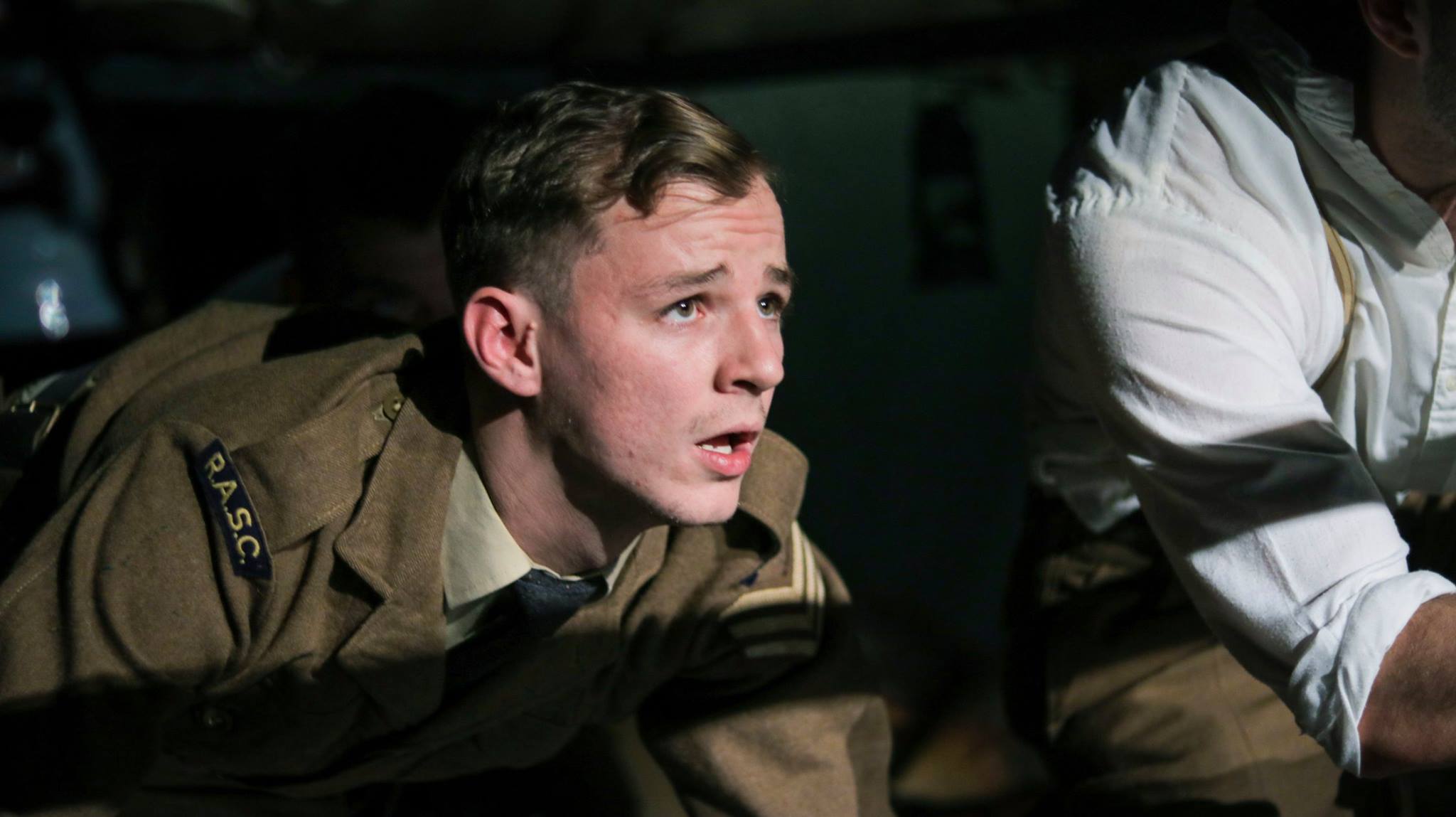LUU Theatre Group’s production of Birdsong was haunting to say the least.
It defied time by slipping seamlessly between Stephen’s horrific struggle through the war and his time spent in the house of factory owner, Rene Azaire, in France. This lack of chronological order was easy for me to understand, having read the book, but I imagine it may have been confusing for those less familiar. Nevertheless, the performance was smoothly executed and allowed for a lonely moment of despair in the trenches to transform into a touching memory of the forbidden warmth of Isabelle, the abused French mistress who was keeper of Stephen’s heart.
These gateways into Stephen’s past appeared endearingly ethereal through their situation amongst the minimal permanent set of the trenches, mainly comprising of a central tunnel and an elevated floor towards the back of the stage. His French friends played obliviously amongst the permanent set of the broken trenches; a clever but dark comment on the imminent shock of war looming upon the characters just a few years down the line. A highlight of this situation came when figures from Stephen’s memory return, clouding the stage as if it were his mind, then ominously retreat in unison, deepening the reality of Stephen’s solitude. Characters who did not appear amongst the trenches, such as Isabelle, emerged there in Stephen’s mind, elucidating the way in which the war affected every one of the characters.

The chemistry between Jack Howe and Celine Nyssens was endearing. Their representation of sexual freedom in the red room was natural and touching, although I was slightly amused the love-making scene rather abruptly transformed into Stephen on a hospital bed. I was shocked and didn’t quite manage to stifle a giggly. Overall however, Isabelle was serene and dignified, with a majestic presence that overpowered the stage.
Stephen Wraysford is a character I thoroughly abhorred when reading the book, but Jack Howe subtly expressed a Stephen with whom I could sympathise. Although edging on the pessimistic schoolboy on the rare occasion, the amount of passion and despair Howe put into Stephen was startling. Particularly impressive was the way in which he quietly incorporated Stephen’s hand tremor into his characterisation consistently throughout the play.

Jason Brasier and Tom Midgley shone as some of the cast’s finest talent. Midgley’s stage presence was hypnotising; though his role was often in the backdrop, his character emanated through every movement of his body and his careful commitment captivated the audience. Brasier, whose dual character meant that he was a level-headed thickly orated Scottish sergeant one moment and a misogynistic wife-beater the next, stole the audience’s breath when he learnt of uncovered secrets.
All in all the performance was a touching commemoration of the lives lost during the war. The purpose for this showing was represented with honour in its final moments, when battalions of poppies fell from the ceiling in a suffocating silence. In that moment, character and actor, spectator and stagehand, were overcome by the despair caused by the war; not only in terms of the innocent lives that were lost, but to the deformation of what it meant to be human.
Liberty Anstead
(Image courtesy of LUU Theatre Group)

